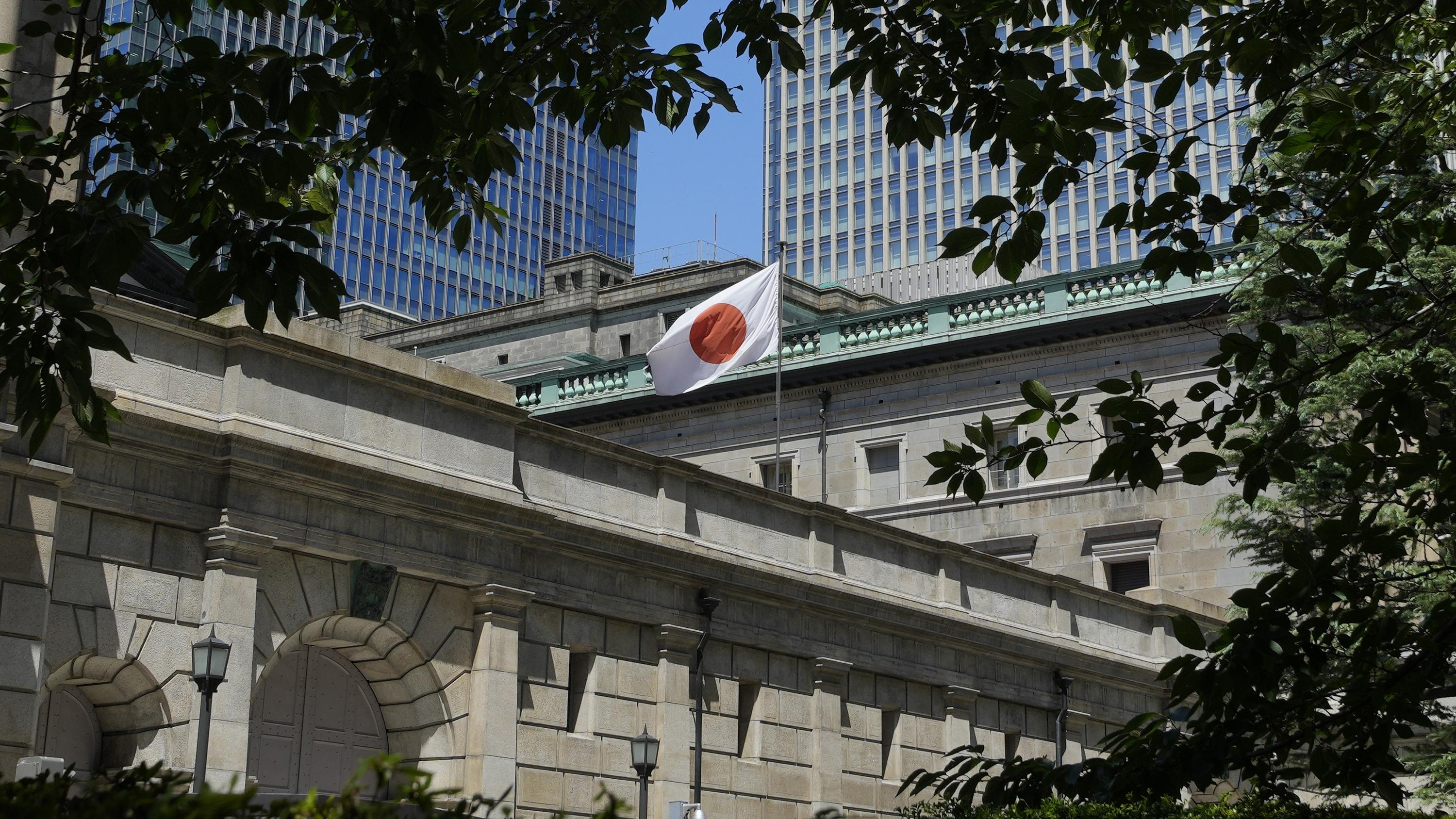 The headquarters of the Bank of Japan (BOJ) is seen in Tokyo on Aug 18, 2023. (PHOTO / AP)
The headquarters of the Bank of Japan (BOJ) is seen in Tokyo on Aug 18, 2023. (PHOTO / AP)
The Bank of Japan announced its decision on Tuesday to continue the existing extensive monetary easing measures following a two-day policy meeting.
The bank move is largely taken as acknowledging that the inflation target, coupled with wage increases, has not been achieved, and that supporting the economy through easing measures remains necessary.
The BOJ upholds the current easing framework, committing to steer short-term rates to minus 0.1 percent and 10-year rates to 0 percent.
The forecast for consumer inflation, excluding fresh food, for the fiscal year 2024 starting in April was adjusted downward from 2.8 percent to 2.4 percent, according to the BOJ's report
Additionally, it will persist with its yield curve control policy, allowing 10-year government bond yields to move up to around 1.0 percent, Nikkei Asia reported.
READ MORE: Japan shares hit 34-yr highs as BOJ stands pat
Despite the inflation rate consistently surpassing the BOJ’s 2 percent target, the central bank maintains its stance that a virtuous economic cycle, featuring a 2 percent inflation rate alongside wage increases, has not materialized.
In its announcement, the BOJ also indicated the necessity to continue monitoring wage increases during spring labor-management negotiations and the subsequent impact on prices.
Given the Noto Peninsula earthquake on New Year’s Day, market sentiment leans toward the BOJ persisting with its easing measures.
READ MORE: BOJ keeps ultra-loose policy, offers few hints on exit timing
On Tuesday, the central bank also published the Outlook for Economic Activity and Prices, a report reviewed quarterly. The forecast for consumer inflation, excluding fresh food, for the fiscal year 2024 starting in April was adjusted downward from 2.8 percent to 2.4 percent. This revision primarily reflects the decline in crude oil prices.
ALSO READ: Japan's business mood hits near 2-year high, BOJ exit in focus
Market speculation suggests that the BOJ might consider a policy change in the March or April meeting, as reported by The Asahi Shimbun, a national daily newspaper in Japan, especially as the situation regarding wage increases in spring labor-management negotiations becomes clearer.


